There is no shortage of explanations as to why farming is one of the most high-risk professions in the country.
A dangerous mix of livestock and machinery is complicated further by the fact that the farm is an extension of the home; more people retire into farming than out of it and tight margins give an increased incentive for shortcuts.
But the time for explaining away why a farmer is seven times more likely to die in a workplace accident than any other sector is over. We can no longer ignore the blight that poor farm safety is on our sector.
As Pat Griffin of the Health and Safety Authority comments, 214 farm families have lost a family member due to a farming accident over the last 10 years.
Anyone in any doubt as to the extent to which a farm tragedy or serious accident can rip the heart out of the family should watch the videos uploaded on farmersjournal.ie. As part of our farm safety partnership with ESB Networks, we talk to 12 families that either lost loved ones or had a serious accident on the farm.
The explanations as to why farming is a more dangerous profession than all others comes as little comfort to Padraig Higgins, who talks about the loss of his six-year-old son James.
To have a real impact, we need to create a culture where poor farm safety practices are called out
In our special Focus supplement, supported by the IFA and FBD, Donal Kennedy recalls the day he lost his son John in a quad bike accident while bringing the cows in for morning milking. It makes chilling reading.
I would like to thank all our families for their bravery in talking so openly. They do so in the hope that by telling their story they will help prevent someone else going through the same agony.
While acknowledging that farm safety has received more attention in recent years, the level of success achieved should lead us to question the effectiveness of the measures taken. Have we been guilty of explaining away the problem at the expense of making the tough calls, of rushing to find a quick-fix solution without developing a long-term strategy?
This week we saw calls for tractor road safety laws to be updated. With tractors accounting for 31% of farm deaths over the past 10 years, it is fair to question existing laws. Is it right to allow a 16-year-old with just a theory test take control of the high-speed, high-horsepower tractors that are used by many farmers/contractors?
A top-down approach is one way to change practices quickly, but to have a real impact we need to create a culture where poor farm safety practices are called out. We have zero tolerance of drink-driving and smoking in public places; given the level of fatalities, we need that zero-tolerance approach to taking risks on farms. Achieving this will require a move away from solely focusing on the quick fixes with more attention placed on education – particularly within schools. We should not ignore the influence that children can wield over their parents and the extent to which they can effect change.
Continuously educating children on farm safety not only makes them more aware of the dangers but gives them the ability to challenge parents or grandparents on safety practises. In this regard, the efforts of groups such as Embrace farm and AgriKids should be acknowledged. Farm safety needs to be given much more prominence within the educational syllabus. The kids of today will become tomorrow’s farmers.
With Farm Safety Week next week, we ask all our readers to sit down with their family and identify what simple steps can be taken to reduce danger.
As a constant reminder, why not cut out the article on Donal Kennedy and pin it to the wall of the farm office or at the backdoor. Each time walking by, ask yourself what you are doing to make sure that you or any member of your family don’t have to endure the heartache faced by Donal or any of the other farmers featured in our videos.
What are you going to do next week and every week to make sure you or your family are never faced with having to lift the lifeless body of a child, parent or spouse out from under a machine or off the farmyard?
Being part of a family farm is something very special but it’s not worth dying for. We can no longer simply accept that a farmer is seven times more likely to die in a workplace accident compared to any other sector.
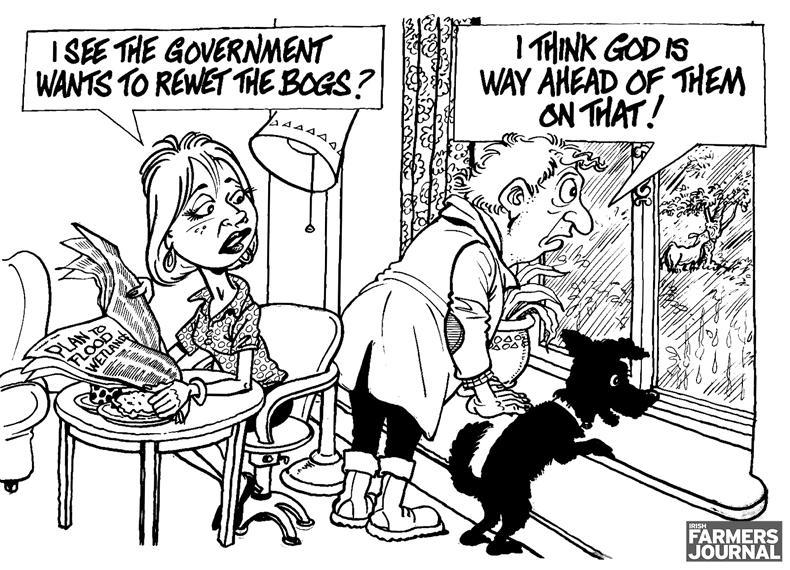
\ Jim Cogan
EU & Brexit: multitude of events challenging the future of Irish agriculture
Elsewhere this week, we carry the first in-depth interview in the Irish media with European Commissioner for Agriculture Janusz Wojciechowskiin-depth interview in the Irish media with European Commissioner for Agriculture Janusz Wojciechowski.
While keen to express his support for farmers, Wojciechowski is also clear in promoting the EU ambitions for agriculture in the next CAP and the Farm to Fork strategy.
He presents the €700m extra for Ireland over his predecessor’s proposals as a gain for Ireland and presents restrictions on fertiliser and pesticide as an opportunity for Irish farmers to reduce costs. He is also passionate about organic – a particular issue for Ireland with such a small domestic market. In the week that the London School of Economics impact assessment revealed the Mercosur deal could lead to a further 128,000t of South American beef being imported to the EU market, he deftly flicked responsibility for it on to now European Commissioner for Trade Phil Hogan.

Phelim O'Neill from the Irish Farmers Journal interviews Commissioner Janusz Wojciechowski.
This week is An Taoiseach Micheál Martin’s first EU council meeting. It is a critical one as the EU wrestles with getting agreement on the €750bn recovery fund and the EU budget for the next seven years, which will determine the value of the CAP. A deal was far away at the last attempt in February but with so much changing since and with Germany holding the EU council presidency, we can expect a big push to get the deal over the line. Part of it is a Brexit recovery fund of €5bn which sounds like a lot of money until we realise it isn’t just for Irish farmers but all EU businesses that are damaged by Brexit.
How trade with the UK will look once the transition period ends in December is also revealed this week with the UK government publishing details of its border controls. These come into force for Irish exporters to the UK, irrespective of whether or not a trade deal is negotiated between the UK and EU, and will be phased in between January and July next year.
They will reintroduce customs declarations, health certification and other bureaucracy that has been eliminated since the creation of the single market in 1993. While this cost is nominally carried by the exporter, the reality is that exporters’ costs of doing business is reflected in the price they pay their farmer suppliers.
All of these parallel developments demand a particular focus from the Government and newly appointed Minister for Agriculture Dara Calleary to minimise the negative impact on Irish farmers and the wider economy.
Dairy: farmers need to question changes to Purchase Price Index
Also this week, Jack Kennedy details changes to the PPI agreed by the board of Ornua on Tuesday.
Co-op chairs must now explain to farmers the reason for extracting the Kerrygold premium out of the PPI and presenting it separately in a way where farmers can no longer measure its contribution in c/l terms.
They must also provide the evidence as to the formula used to calculate a 16.6% increase in processing costs since 2011. Co-op executives have complete transparency over production costs at farm level and international benchmarks. Yet the farmers that own the co-ops are given no transparency over processing costs and are provided with no international benchmarks.
It is a scenario that co-op chairs must move to address immediately.
There is no shortage of explanations as to why farming is one of the most high-risk professions in the country.
A dangerous mix of livestock and machinery is complicated further by the fact that the farm is an extension of the home; more people retire into farming than out of it and tight margins give an increased incentive for shortcuts.
But the time for explaining away why a farmer is seven times more likely to die in a workplace accident than any other sector is over. We can no longer ignore the blight that poor farm safety is on our sector.
As Pat Griffin of the Health and Safety Authority comments, 214 farm families have lost a family member due to a farming accident over the last 10 years.
Anyone in any doubt as to the extent to which a farm tragedy or serious accident can rip the heart out of the family should watch the videos uploaded on farmersjournal.ie. As part of our farm safety partnership with ESB Networks, we talk to 12 families that either lost loved ones or had a serious accident on the farm.
The explanations as to why farming is a more dangerous profession than all others comes as little comfort to Padraig Higgins, who talks about the loss of his six-year-old son James.
To have a real impact, we need to create a culture where poor farm safety practices are called out
In our special Focus supplement, supported by the IFA and FBD, Donal Kennedy recalls the day he lost his son John in a quad bike accident while bringing the cows in for morning milking. It makes chilling reading.
I would like to thank all our families for their bravery in talking so openly. They do so in the hope that by telling their story they will help prevent someone else going through the same agony.
While acknowledging that farm safety has received more attention in recent years, the level of success achieved should lead us to question the effectiveness of the measures taken. Have we been guilty of explaining away the problem at the expense of making the tough calls, of rushing to find a quick-fix solution without developing a long-term strategy?
This week we saw calls for tractor road safety laws to be updated. With tractors accounting for 31% of farm deaths over the past 10 years, it is fair to question existing laws. Is it right to allow a 16-year-old with just a theory test take control of the high-speed, high-horsepower tractors that are used by many farmers/contractors?
A top-down approach is one way to change practices quickly, but to have a real impact we need to create a culture where poor farm safety practices are called out. We have zero tolerance of drink-driving and smoking in public places; given the level of fatalities, we need that zero-tolerance approach to taking risks on farms. Achieving this will require a move away from solely focusing on the quick fixes with more attention placed on education – particularly within schools. We should not ignore the influence that children can wield over their parents and the extent to which they can effect change.
Continuously educating children on farm safety not only makes them more aware of the dangers but gives them the ability to challenge parents or grandparents on safety practises. In this regard, the efforts of groups such as Embrace farm and AgriKids should be acknowledged. Farm safety needs to be given much more prominence within the educational syllabus. The kids of today will become tomorrow’s farmers.
With Farm Safety Week next week, we ask all our readers to sit down with their family and identify what simple steps can be taken to reduce danger.
As a constant reminder, why not cut out the article on Donal Kennedy and pin it to the wall of the farm office or at the backdoor. Each time walking by, ask yourself what you are doing to make sure that you or any member of your family don’t have to endure the heartache faced by Donal or any of the other farmers featured in our videos.
What are you going to do next week and every week to make sure you or your family are never faced with having to lift the lifeless body of a child, parent or spouse out from under a machine or off the farmyard?
Being part of a family farm is something very special but it’s not worth dying for. We can no longer simply accept that a farmer is seven times more likely to die in a workplace accident compared to any other sector.

\ Jim Cogan
EU & Brexit: multitude of events challenging the future of Irish agriculture
Elsewhere this week, we carry the first in-depth interview in the Irish media with European Commissioner for Agriculture Janusz Wojciechowskiin-depth interview in the Irish media with European Commissioner for Agriculture Janusz Wojciechowski.
While keen to express his support for farmers, Wojciechowski is also clear in promoting the EU ambitions for agriculture in the next CAP and the Farm to Fork strategy.
He presents the €700m extra for Ireland over his predecessor’s proposals as a gain for Ireland and presents restrictions on fertiliser and pesticide as an opportunity for Irish farmers to reduce costs. He is also passionate about organic – a particular issue for Ireland with such a small domestic market. In the week that the London School of Economics impact assessment revealed the Mercosur deal could lead to a further 128,000t of South American beef being imported to the EU market, he deftly flicked responsibility for it on to now European Commissioner for Trade Phil Hogan.

Phelim O'Neill from the Irish Farmers Journal interviews Commissioner Janusz Wojciechowski.
This week is An Taoiseach Micheál Martin’s first EU council meeting. It is a critical one as the EU wrestles with getting agreement on the €750bn recovery fund and the EU budget for the next seven years, which will determine the value of the CAP. A deal was far away at the last attempt in February but with so much changing since and with Germany holding the EU council presidency, we can expect a big push to get the deal over the line. Part of it is a Brexit recovery fund of €5bn which sounds like a lot of money until we realise it isn’t just for Irish farmers but all EU businesses that are damaged by Brexit.
How trade with the UK will look once the transition period ends in December is also revealed this week with the UK government publishing details of its border controls. These come into force for Irish exporters to the UK, irrespective of whether or not a trade deal is negotiated between the UK and EU, and will be phased in between January and July next year.
They will reintroduce customs declarations, health certification and other bureaucracy that has been eliminated since the creation of the single market in 1993. While this cost is nominally carried by the exporter, the reality is that exporters’ costs of doing business is reflected in the price they pay their farmer suppliers.
All of these parallel developments demand a particular focus from the Government and newly appointed Minister for Agriculture Dara Calleary to minimise the negative impact on Irish farmers and the wider economy.
Dairy: farmers need to question changes to Purchase Price Index
Also this week, Jack Kennedy details changes to the PPI agreed by the board of Ornua on Tuesday.
Co-op chairs must now explain to farmers the reason for extracting the Kerrygold premium out of the PPI and presenting it separately in a way where farmers can no longer measure its contribution in c/l terms.
They must also provide the evidence as to the formula used to calculate a 16.6% increase in processing costs since 2011. Co-op executives have complete transparency over production costs at farm level and international benchmarks. Yet the farmers that own the co-ops are given no transparency over processing costs and are provided with no international benchmarks.
It is a scenario that co-op chairs must move to address immediately.





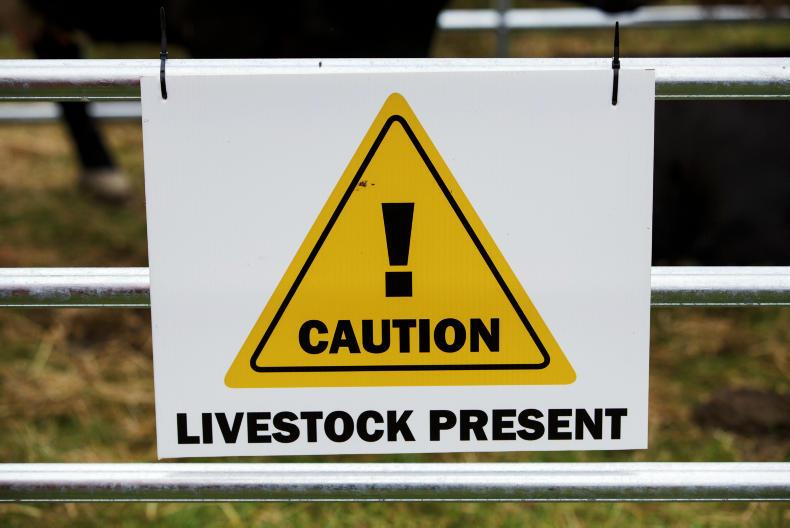

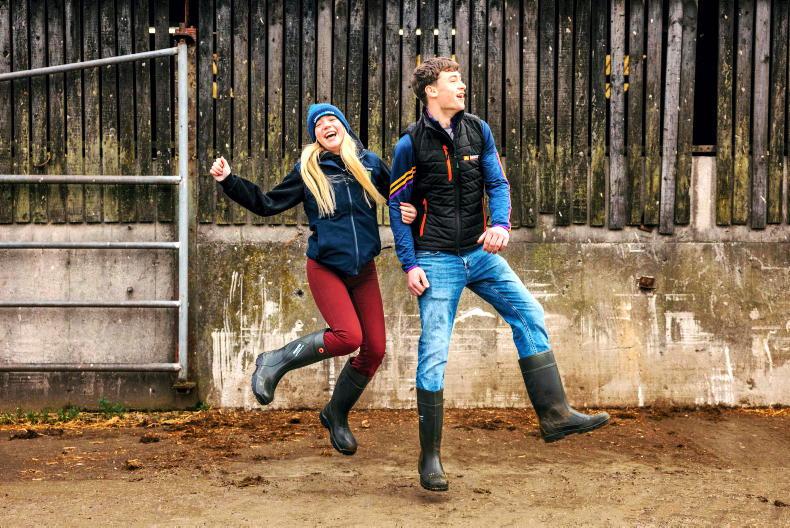
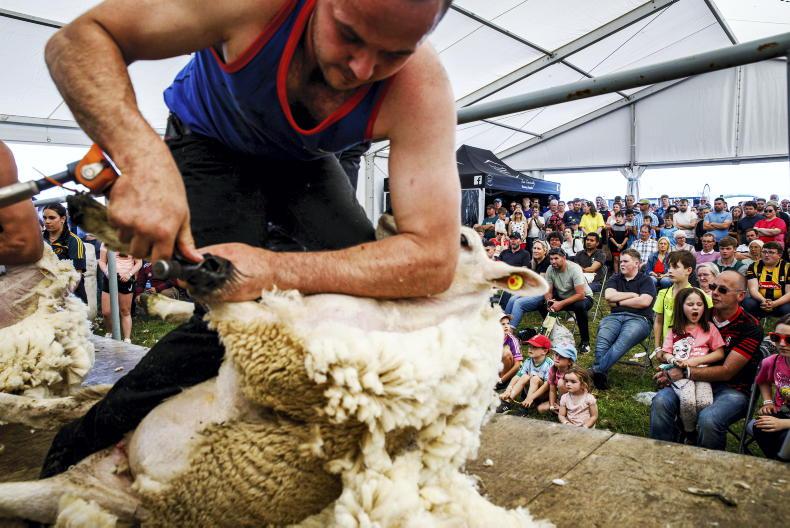
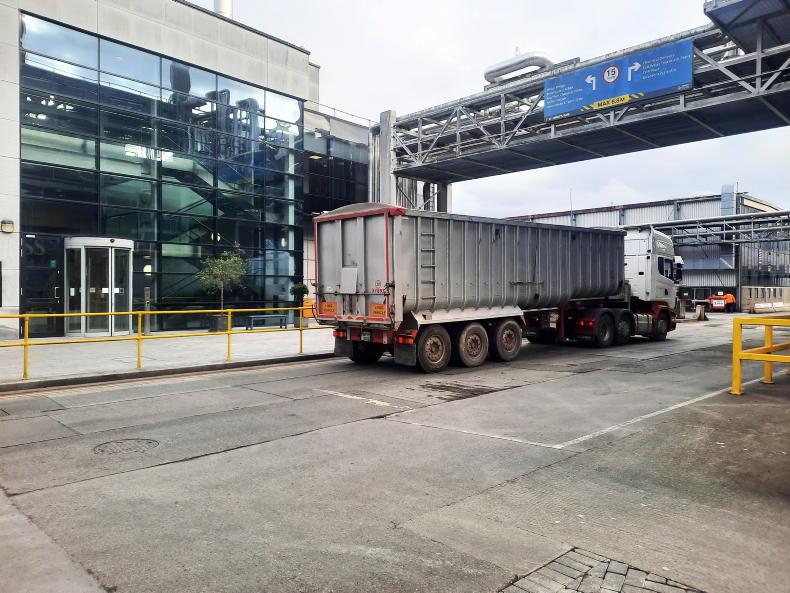
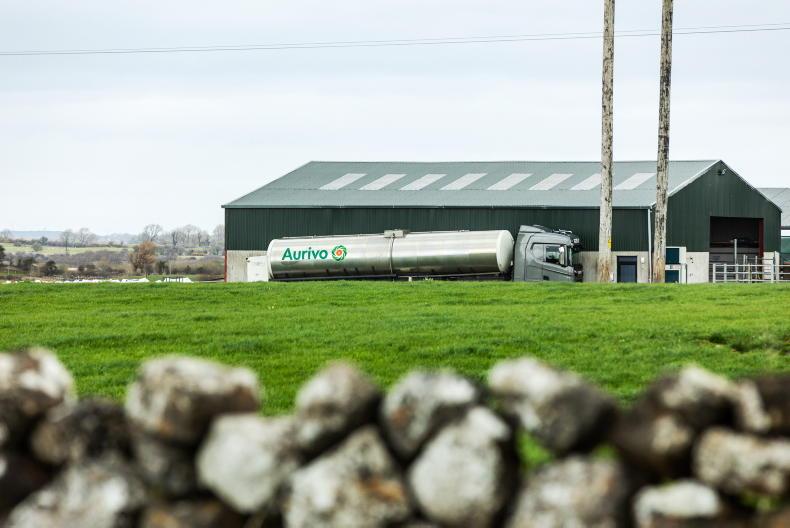
SHARING OPTIONS